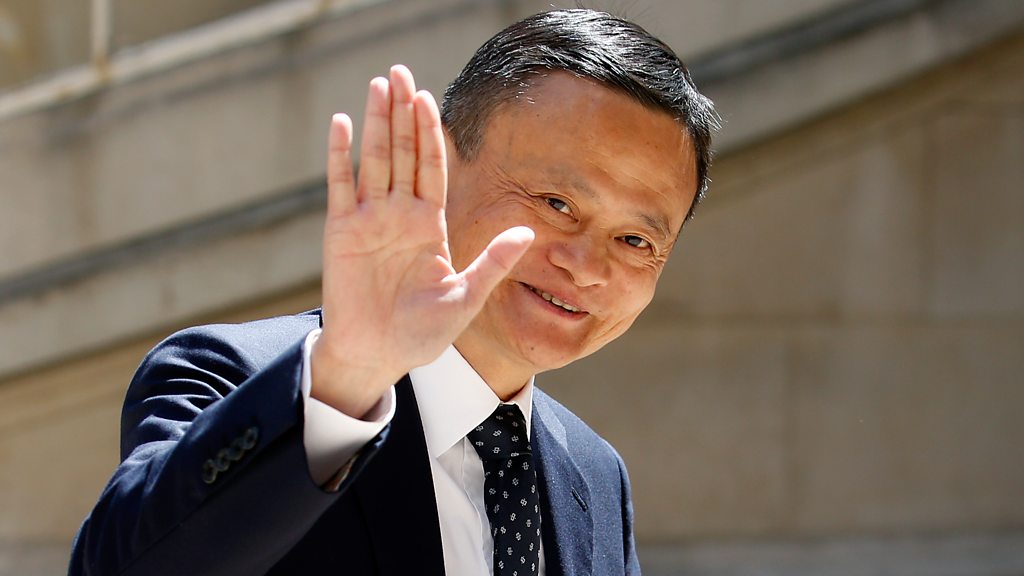Colin Parkinson
Army.ca Myth
- Reaction score
- 12,673
- Points
- 1,160
Keeping in mind the fishing fleet is partly organized as a militia, so not only is it a commercial operation, but a paramilitary arm of the PLAN/CCP.


I really do wish that all diplomats could talk like this without being fired.
Philippines foreign sec. tells China: 'Get the f--k out' of West Philippines Sea
Philippines Foreign Secretary Teodoro Locsin Jr. told China to “get the f—k out” of what is known domestically as the West Philippines Sea in a post onamericanmilitarynews.com
Phillipines is done talking nicely apparently


It's odd to say that I would be extremely surprised if they did anything to Jack Ma, given how high profile he is. His company is world known, and he has become a popular figure online, and is frequently asked to be a speaker at a variety of events. Given his wealth, status, and high profile -- I would be extremely surprised if he was 'disappeared' by the state, the same way a lowly commoner would be.Imagine if Jeff Bezos crossed some undocumented social line, and disappeared.
That's what happened to Jack Ma, head of Alibaba.

The Documentary - Where is Jack Ma? - BBC Sounds
Days before his company embarked on a share listing, billionaire Jack Ma went missingwww.bbc.co.uk
China currently ranks second, or perhaps even first, in the world in gross domestic product (although 78th in per capita GDP),
While VPNs are quite common, and not really enforced at all, a lot of Chinese citizens have lived their entire lives, grown up with their media & education, and are blissfully unaware of how their government is viewed by the outside world. China does have "the great firewall of China" after all, and I would say large percentage of the population have been drinking the Kool-Aid they have been given since they were kids. (The younger generation seems to regularly access the internet of the outside world.)
The Chinese Communist Party gets to build guns by depriving its people of butter.
How important are pride, honour and face to the average Han citizen? To the non-Han citizens?
You're talking about a cultural change here. The party line had been indoctrinated into the Chinese population for generations. I think you're underestimating the amount of time it would take for the average Chinese citizen to change the way they think about the world.If you want to hurt China, go aggressive on the cyber front, take down the great fire wall. If the nation could soak in the world unfiltered, it wouldn't take long for the collective thought to turn against Beijing, especially in non-han areas.

Actually, rapid change is possible in China; I would offer 1949-1965 as an example. Seldom has any country, anywhere, ever, seen as rapid or as broad a socio-economic 'revolution' as China did, then. Maybe Britain in the late 18th century (1760-1790) and America and Germany in the 1830s, '40s and '50s. It had little to do with Mao and almost everything to do with Zhou Enlai, Soong Ching-ling and a few others.You're talking about a cultural change here. The party line had been indoctrinated into the Chinese population for generations. I think you're underestimating the amount of time it would take for the average Chinese citizen to change the way they think about the world.
I'm thinking you'd likely have to permanently take down the great fire wall and combine that with the same type of Voice of America push of information into China as was done in the USSR during the Cold War while at the same time dealing with Chinese counters to our actions.
And can anyone say with any certainty how much of an influence that VOA had on the eventual fall of the Soviet Union? How much of it was the failing economy and the war in Afghanistan that turned the people against the regime rather than glimpses of the openness and freedom of the West? And China is in a very different situation. They are currently on the rise as a power and the government has succeeded in bringing millions of citizens out of poverty and their country to a new level of international power and prominence.
I think sometimes we are blinded by our belief that because we whole heartedly embrace our Western Liberal Democracy and our way of life, so assume that everyone else automatically want to leave their own unique cultures behind and become just like us. Wanting to be as wealthy as us doesn't necessarily mean they want our beliefs as well.
$.02
From the article:Good news for the rest of the world

China faces strains as population ages, birth rate falls
BEIJING (AP) — Yue Yan is glad to have two daughters but sees why, even with the ruling Communist Party urging them to have more children, fewer Chinese women give birth at all. Yue, 35, spends days looking after her 2-year-old and evenings helping her 10-year-old with homework. Yue quit a...www.citynews1130.com
The 12 million births reported last year were down nearly one-fifth from 2019. About 40% were second children, down from 50% in 2017, according to Ning Jizhe, a statistics official who announced the figures on May 11.
The share of working-age people under 60 in China’s population of 1.4 billion fell to 63.3% last year from 70.1% a decade earlier, according to census data. The group aged 65 and older grew to 13.5% from 8.9%.
I'm not sure how that can be more than expected - it's not like people age faster or slower...“The aging of the Chinese population grows faster than we expected,” said Yi Fuxian, a senior scientist in obstetrics and gynecology at the University of Wisconsin in Madison.
If by rapid you mean 10-30 years then I'd agree change is possible (and in fact I think it will be likely...eventually...in China). That kind of timeframe gives the Chinese government the opportunity to read the sea change and adjust to meet the changing demands of the population.Actually, rapid change is possible in China; I would offer 1949-1965 as an example. Seldom has any country, anywhere, ever, seen as rapid or as broad a socio-economic 'revolution' as China did, then. Maybe Britain in the late 18th century (1760-1790) and America and Germany in the 1830s, '40s and '50s. It had little to do with Mao and almost everything to do with Zhou Enlai, Soong Ching-ling and a few others.
Propaganda works. I think ~ cannot prove, of course, but I have examined it a fair amount ~ that Radio Free Europe, Voice of America and, above all, the BBC World Service had a massive impact on Eastern Europe, Africa and Asia. I would suggests that the BBC did more than any other agency,,including the US Military, to contain the spread of Marxist-Leninist ideas in Asia. The World Service did not flog the Anglo-American line: but it was "liberal" and honest. Afro-Asian listeners were discerning enough.

America may not even be the world’s biggest spender in real terms, let alone spend more than the next ten countries combined. His verdict: “despite China’s ridiculously low official defense spending figures, the value of its defense budget may have surpassed what the U.S. actually spends on defense.”
Actually being the keyword.
As it turns out, China tries to ameliorate worries about its burgeoning military might by lowballing spending figures. It can acquire military personnel and hardware more cheaply than can the United States, giving it an edge in defense “purchasing power parity,” to borrow economists’ term. Meanwhile, much of the U.S. defense budget, now northwards of $700 billion per year, does not go to buying usable combat power. And what combat power it does buy is pricier than the equivalent for China’s People’s Liberation Army. For instance, The Economist of London reports that the U.S. military pays junior folk sixteen times more than their PLA counterparts.
These factors cancel out the apparent disparity between defense spending at least in part; Greenwalt suggests they cancel it out altogether. He points out that the Stockholm International Peace Research Institute has adjusted up Chinese defense spending from the official figure of $184 billion to $252 billion.
Drawing on research out of Australia, The Economist estimates it at $518 billion—double SIPRI’s figure.
If the arithmetic understates China’s martial prowess, it overstates America’s. Representative Anthony Brown, the vice chairman of the House Armed Services Committee, observes that the top line for U.S. defense budgets—$715 billion for this coming year if the Biden administration gets its way—misleads. “We spend $1 billion more on Medicare in the defense budget than we do on new tactical vehicles,” Brown reports. “We spend more on the Defense Health Program than we do on new ships. In total, some $200 billion in the defense budget are essentially for nondefense purposes—from salaries to health care to basic research.”
Deducting $200 billion from $715 billion in apparent U.S. defense spending yields $515 billion in real defense spending—a mite less than the Economist tally for Chinese spending on the PLA.

From the article:
I'm not sure how that can be more than expected - it's not like people age faster or slower...

